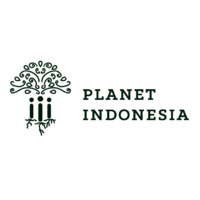
Planet Indonesia
Mission of the organisation
Planet Indonesia conserves at-risk ecosystems through village-led partnerships by founding Conservation Cooperatives in West Kalimantan, Indonesia. Rural coastal villages in West Kalimantan suffer rampant biodiversity and natural resource exploitation, primarily driven by a lack of access to basic services and economic opportunities. West Kalimantan is home to Bornean rainforest and high-carbon mangrove ecosystems that are the habitat for species such as orangutans, sun bears, hornbills, langurs, and many more. Coastal mangrove ecosystems function as nurseries for many aquatic species such as fish, shrimp, crabs, and marine mammals. If disturbed, entire life cycles and populations of marine and mangrove forest species risk devastation. If these areas are logged, massive amounts of carbon are released into the atmosphere, exacerbating climate change. These areas are some of the world's most threatened ecosystems and without proper protection, we run the risk of losing iconic species to extinction, exacerbating climate change, and destroying nurturing forests that provide humans with important natural resources. The Bornean rainforest and coastal mangrove forests are also home to indigenous Dayak communities who have been living in tandem with these biodiverse ecosystems for years, however, these communities face their own set of personal threats. These villages live in poverty (earning <$5 USD / day) and suffer from lack of access to basic healthcare, literacy training, and financial assets. With limited income-gaining opportunities, villagers often resort to illegal wildlife trade and overharvesting of forest and fisheries resources, resulting in biodiversity loss and ecosystem degradation. Planet Indonesia addresses the interconnected issues of socioeconomic inequality and ecosystem degradation in West Kalimantan using a bottom-up and top-down approach we call "Conservation Cooperatives." For our bottom-up approach, we form community-based management systems for natural resources and biodiversity. The principle is simple- community members who join our Conservation Cooperatives can opt-in to receive basic healthcare and family planning services, literacy and education training, and business and microfinance training in exchange for moving away from environmentally degrading practices and investing in sustainable livelihoods. Our goal is to shift economic dependence form exploitative, illegal, and unsustainable activities to sustainable livelihoods. Our community services team offers services for Conservation Cooperative members in three sectors: healthcare, education, and finance. Our health services team engages local community members as Health Ambassadors to help access and distribute basic healthcare and family planning services from regional Health Departments. Our education and literacy team of local educators and tutors offers basic literacy training all the way through to completion of High School diplomas. Our community services team offers business trainings that range from microfinance to entrepreneurship courses. Conservation Cooperative members can opt-in for as many services as they desire to meet their personal needs and goals and are then able to switch to sustainable livelihoods. Our Wildlife Trade Monitoring Unit uses a Spatial Monitoring and Reporting Tool (or SMART patrol teams) consisting of community members, one law enforcement official, and one Planet Indonesia staff to monitor for illegal activity in priority sites. SMART patrols consist of community members, one law enforcement official, and one Planet Indonesia staff. to Planet Indonesia continues to facilitate services throughout the life of our programs while gradually shifting Conservation Cooperatives toward independence, meaning a fully community-run governance system. We combine top-down and bottom-up approaches to conserve ecosystems, improve human well-being, and protect priority species. This means we use Conservation Cooperatives (bottom-up) and work with law enforcement agencies (top-down) to cover all the bases when it comes to strengthening conservation efforts. In addition to our community services, we work at the regional and national levels to provide legal support to government agencies to cripple illegal wildlife trade supply chains. Our wildlife crime team works directly with three Indonesian government agencies: The Department of Natural Resources (BKSDA), the Police (POLDA), and the Environmental Law Enforcement Agency (SPORC), to make law enforcement more effective. Our Wildlife Trade Monitoring Unit and SMART patrols monitor online and offline forums for illegal wildlife trade and improves the capacity of government officials to combat illegal wildlife trade by providing intel and on-the-job learning. This program focuses on middlemen and wealthy individuals who often prey upon income-poor communities through illegal poaching. Through an MOU with the Indonesian Government, we have been supporting law enforcement actions against perpetrators since the launching of our program in 2015. Our policy and regulatory frameworks team works with the Judiciary System of the Indonesian Government to ensure that perpetrators are effectively prosecuted. This team works directly with the judiciary to reduce corruption and to ensure those involved in wildlife crime receive adequate deterrents and do not pay-off law enforcement officers. To summarize, Planet Indonesia's Conservation Cooperatives act as the platform through which we provide services to members in three sectors: education, health, and business, in exchange for restoring ecosystems and adopting sustainable livelihoods. Rather than just treat the symptoms, we conserve biodiversity and resources by targeting the root problem and causes of their exploitation- rural poverty and inequality. We also provide logistical support and capacity building to government law enforcement agencies to ensure appropriate prosecutions for criminal activity. Our approach to conservation is unique in that it recognizes the inseparable nature of human and environmental health and the necessity to invest in both aspects simultaneously to catalyze effective conservation practices. Overall, our programs are designed to build sustainable skillsets for law enforcement and create sustainable, community-led governance structures for natural resource management.
Causes
Live Projects
Sort by
Reset filters
0 projects found sorted by Relevant

Nothing Found
